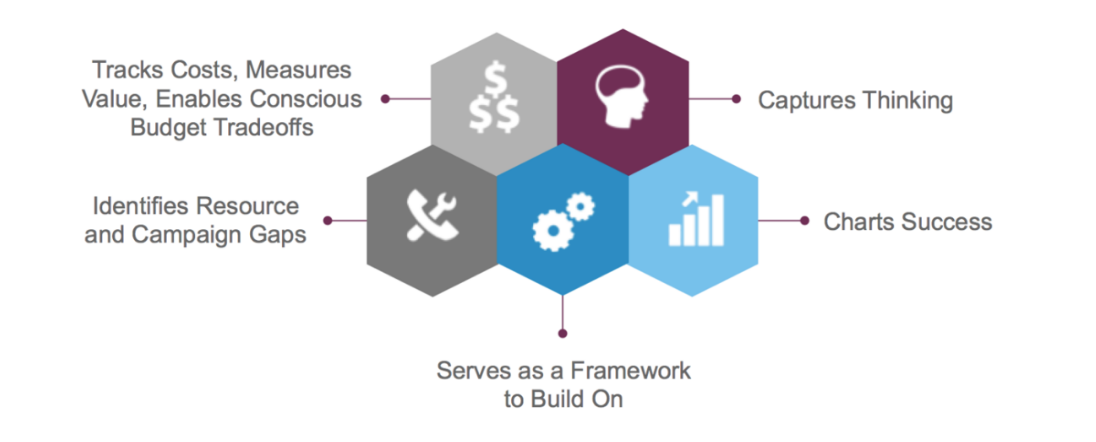
Lately, I’ve seen a shift in the number of rapidly-growing companies willing to put the time and investment into marketing planning and budget forecasting. This may be because marketing is being held more accountable to actual key performance indicators (KPIs) and lead-to-conversion metrics.
I’m a huge believer in crafting and following a marketing plan. Our clients that buy, create, and adhere to plans are by far the most successful in growing both revenues and valuation.
Here are my top five reasons for creating a marketing and budget plan:
Marketing Plans Capture Thinking
Marketing strategies, analytics, and tech stacks become more complex every year. Marketing leaders face a dizzying number of challenges and opportunities to manage, often at warp speeds that seemed unimaginable even a few years ago.
But by focusing on campaigns that really matter and documenting it, you can break away from competitors that use “spray and pray” marketing.
Marketing Plans Serve as Foundation Framework
Building a year one marketing plan might take three months. The following year it will take a couple of weeks max unless your business model gets completely revamped.
Trust me on this one. Once you make the initial investment, you’ll be so happy when the next fiscal year planning cycle comes around, and you need to generate a new marketing plan and budget.
Marketing Plans Track ROI and Budget Tradeoffs
Do you remember why you nixed analyst relations three years ago? Probably not. Chances are high you don’t get the full budget you want every year. If you document metric tracking and budget tradeoffs, your management team will understand the implications of cuts or changes in direction to the marketing bottom line.
You can also clearly illustrate how marketing programs and spend line up to support business goals.
Marketing Plans Chart Successes and Failures
I’ve never come across a marketing department that hit a home run with every campaign. You need to track metrics and analytics during the course of the year in order to know what worked and what bombed.
A solid marketing plan will lay out how metrics will be measured, which analytics platforms are used, and how sales and marketing will communicate their successes and failures as an integrated team.
Marketing Plans Identify Gaps
The main problem I see with “spray and pray” marketing programs is you never have the number of resources you need to adequately staff for success.
High-growth companies hire the right talent. By planning monthly strategies and tactics, you have a far clearer picture of the internal and external resources needed.
You’ll also identify if you are completely missing out on reaching a target persona or segment.
Marketing leaders at high-growth companies say the two most important factors that contributed to success were articulation and documentation of clear strategy, followed by C-suite commitment.
Creating your company’s first marketing plan is a huge investment. However, it will pay dividends for years in both revenue growth and efficiency.
Want proof? Read how strategic market planning grew Astarte Biologics by 4.2X and led to a successful merger.



